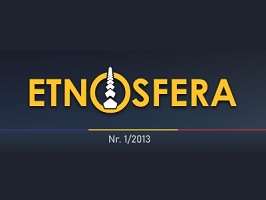The US economy. A sociological analysis (part I)
The US economy. A sociological analysis (part I)
Author(s): Gabriel SăpunaruSubject(s): National Economy, Ethics / Practical Philosophy, International relations/trade, Financial Markets, Socio-Economic Research, Geopolitics
Published by: Editura Academiei Române
Keywords: financial crisis; US economy; oikonomia; banking system; risk management;
Summary/Abstract: The recent financial crisis showed how the world is systemically related especially when it comes to sharing faults. The recession started by the Lehman Brothers collapse hit the entire world depriving it of at least 12 trillion dollars (The Guardian, 2009). Is the current crisis part of a downturn of the economic knowledge? At first, it seems to be at least a ‘BlackSwan’ – in Taleb’s words, a much appreciated analyst of risk models –, i.e. a special form of hasty knowledge related to risk. The crisis is thus a phenomenon that not only economically, but also culturally struck the entire world, demonstrating that uncertainty and predictability are as far as ever and that there is no real progress in the social-economic field. The crisis is an opportunity and an emergency in the same time. The economics and the sociologic of economics must be overhauled. We will try to sort out the discussion on this matter starting from the “moral economy” of classics such as Adam Smith.
Journal: Etnosfera
- Issue Year: 17/2013
- Issue No: 1
- Page Range: 1-7
- Page Count: 7
- Language: English

